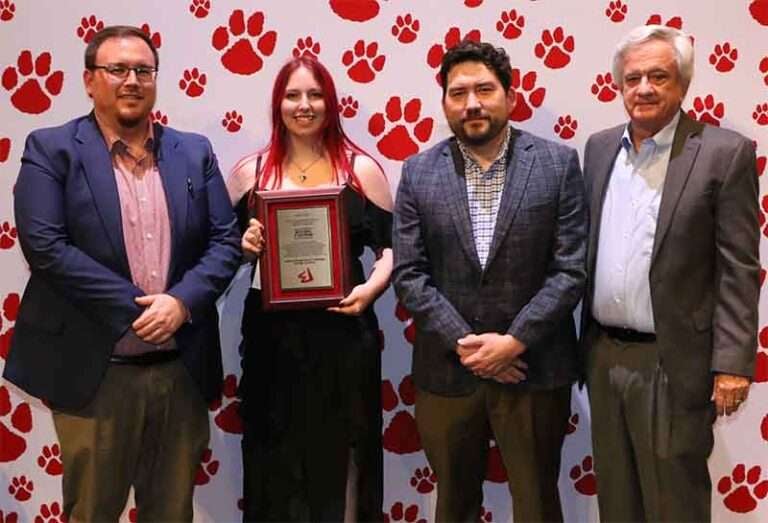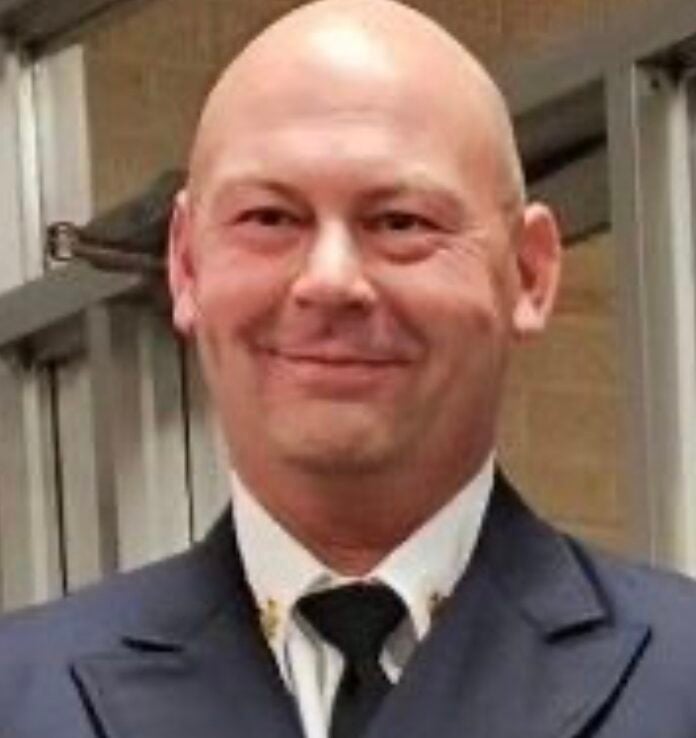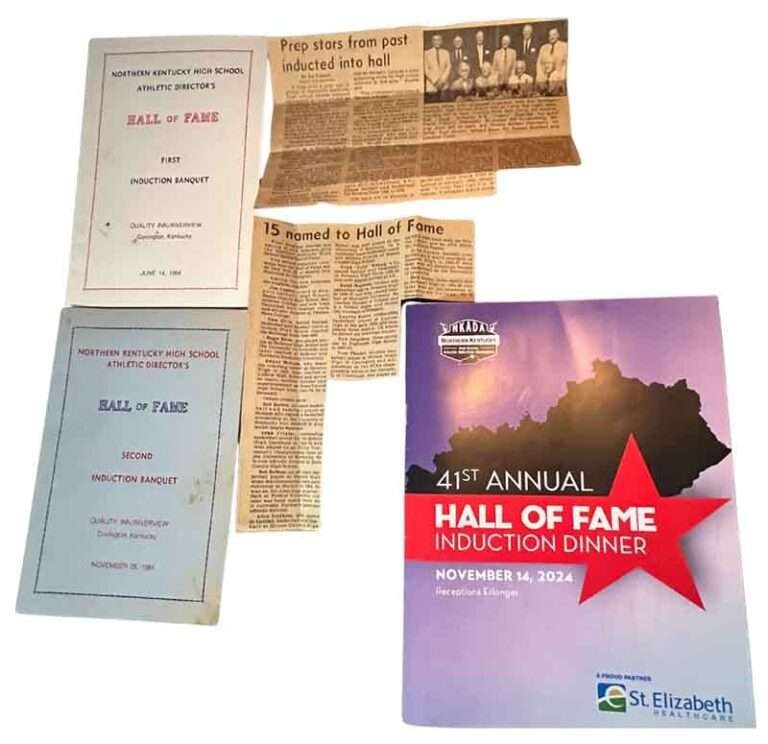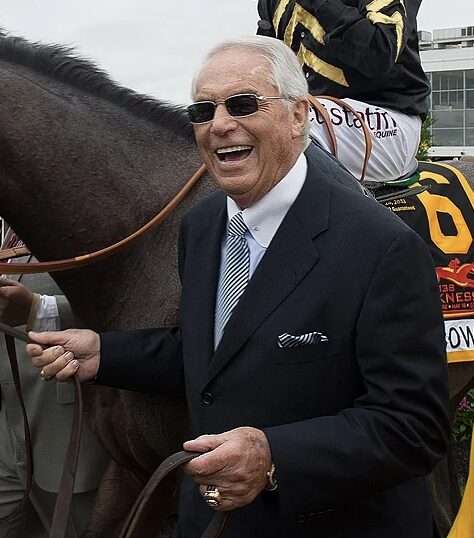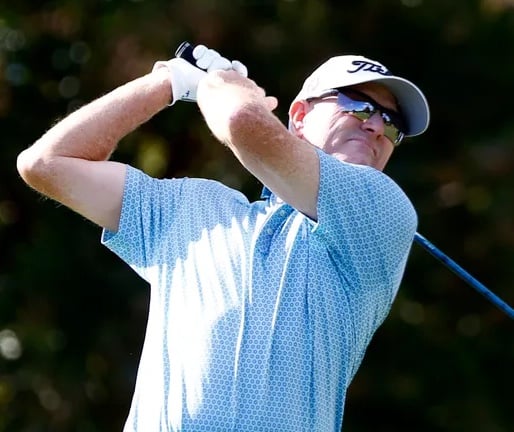“Flyover country” is the dismissive description some big city folks use to describe rural America. Ariel Lavery disagrees. As host and managing producer of the award-winning podcast Middle of Everywhere, she characterizes her work as, “Big stories from the small places we call home.”
In its third season on WKMS-FM, the NPR affiliate in Murray, Middle of Everywhere delved into various aspects of women’s health, including the history of abortion in rural America, access to gender-affirming health care in rural areas, women’s reproductive lives, and women’s roles in end-of-life care through rural hospice.
To celebrate completion of season three, WKMS partnered with artist Ann Flowers who facilitated an art journaling workshop in a two-step process. First, participants were invited to write about their own health care journeys. Next, they created collages to amplify those experiences and then shared their creations with the rest of the group.
“How far can you go?” is the question Susan Crawford posed in her collage (pictured), perhaps inspired by ongoing treatment for cancer.
Combining images, words, textures, and found objects, collage challenges audiences to take a closer look at the ways individual media intersects and overlaps. Raising questions, challenging assumptions, fostering critical thinking, and sparking discussion, collage is a suitable metaphor to cap the end of Media Literacy Week and National Arts and Humanities Month.
Besides the creative activities in western Kentucky last week, the Institute for Rural Journalism and Community Issues met Thursday in Lexington for the Al Smith Award for Community Journalism by Kentuckians, and the Tom and Pat Gish Award for courage, tenacity, and integrity in rural journalism.
The IRJCI logo is a quilt, another sort of collage, representing the intricacies rural journalists examine and explain to the communities they serve.

The Al Smith Award went to Craig Garnett, owner of the Uvalde Leader-News in southwest Texas. The paper was lauded for watchdog journalism in the aftermath of a school shooting in a town of 15,000. Nineteen children and two teachers died in the massacre.
Through the newspaper he has owned for 24 years, Garnett and the Leader-News staff asked tough questions and spoke out. Such actions are harder to take in small, rural communities, especially when one of his reporters had lost a child in the slaughter.
Accepting the award, Garnett advised small town media to “Pay attention to everything. Be invested.”
In addition, he declared, “We didn’t ask enough questions. We didn’t hold law enforcement to high enough standards.”
Praising the Institute for Rural Journalism and Community Issues for “doing a world of good,” Garnett emphasized the importance of courage, integrity, and tenacity adding, “Tenacity makes the difference.”
The Tom and Pat Gish award went to Ben Gish, their son and now publisher, along with Sam Adams, reporter. The two worked together non-stop at The Mountain Eagle in Whitesburg, Ky., in the face of a thousand-year flood in southeastern Ky. The in-depth coverage was able, “to comfort the afflicted and afflict the comfortable.”
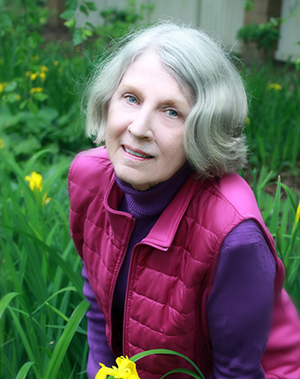
Gish went on to explain that a thousand-year flood did not mean “the next one won’t happen for a thousand years. This is not usual, not just here in Kentucky. It’s all over the world.”
If attendees at the IRJCI award dinner did not find enough motivation and inspiration from the award winners, Susan Page, Chief of the Washington Bureau of USA Today, ended the occasion as keynote speaker. Winner of multiple awards in journalism, she has covered eleven presidential campaigns and seven administrations.
Author of two best-selling biographies – of Barbara Bush and Nancy Pelosi – Page said, “This is not really a happy time for the industry we love.”
She detailed the challenges of newspapers folding and merging at home, while journalists around the world risk their lives to cover the news.
“Without journalists,” she mused, “who would ask questions? We knit communities together.”
The IRJCI event ended with a surprise announcement of a new citation, the Al Cross Polaris Award. Cross, the first director of the organization and the first recipient of the award named for him, is retiring next year and handing the reins to Benjy Hamm.
Back in Murray, as Media Literacy Week ended, WKMS was honored to report on the array of Impact Broadcast Awards received recently. Chief among the awards was the First Place award for Overall Excellence in the radio category, recognizing outstanding news team performance in everyday reporting, breaking news, continuing coverage, and enterprise stories.
Meanwhile, Middle of Everywhere’s Ariel Lavery is looking ahead to season four of the podcast series. “I haven’t nailed down a theme for the next season,” she admitted, “but one theme I’ve been thinking about for a few years now is how immigrants are shaping rural communities: culturally, politically, environmentally, etc.”
Lavery is also interested in stories about refugee populations in rural areas, climate change, and how “new” people are incorporated into the community collage of social, political, economic issues and challenges.








